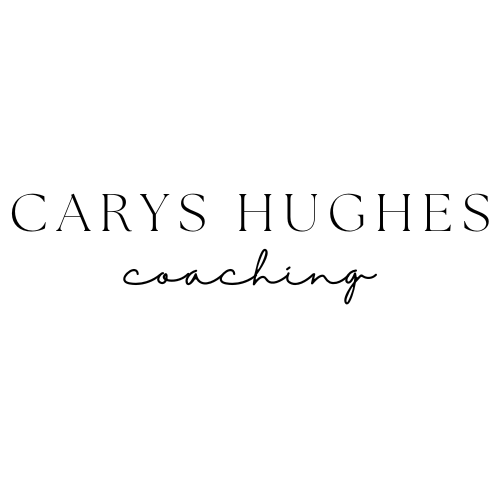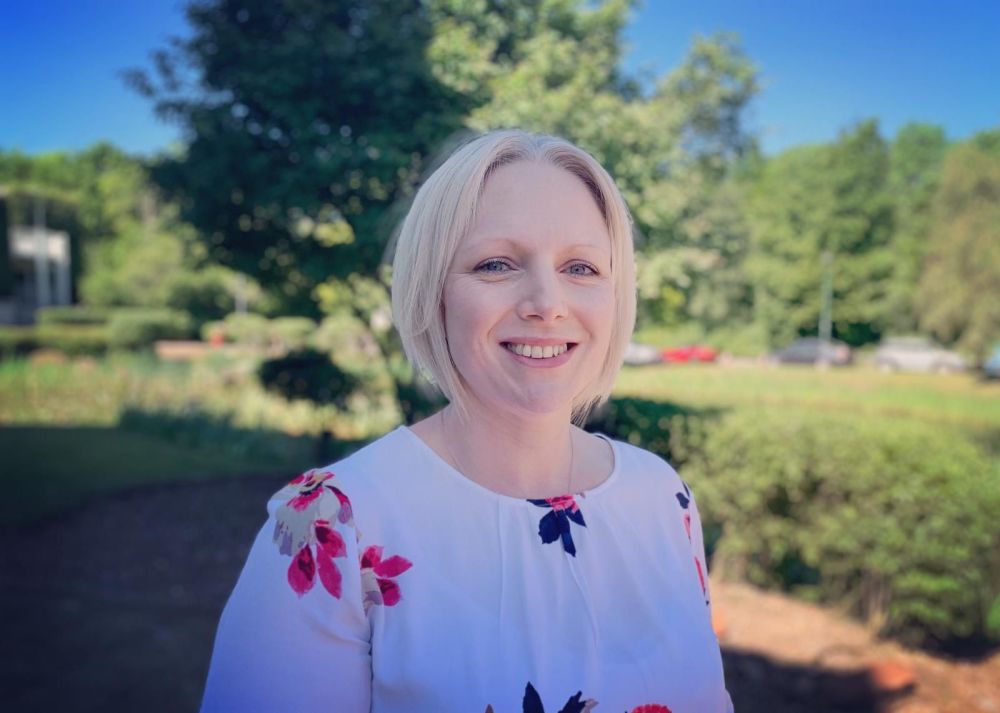From Aerospace to Everything Gardening
Posted on
"I knew from an early age that I didn’t want a 9-5 job, I don’t see the point of working for someone else or being tied to a desk. I’ve done it, I hated it. I clock watched from 9am Monday to 5pm Friday!!"
PHOTO HERE
Ahh so many nuggets of wisdom here in Jess' blog post. From holding her own in the male dominated world of Aerospace to retraining in everything Gardening, Jess briefly flirted with employment once or twice, but it sounds like ultimately freedom was a value she held too dearly to be constricted in that way! (I hear you Jess!). Whn I read "You needed experience and qualifications on horticulture and I didn’t have them so I applied anyway." I literally shouted YES out loud!! (and she got in by the way!) Let this be a lesson to us all, don't give up too easily or you could be seriously missing out on something wonderful!! I promise you will take something useful and positive away from the story Jess has kindly shared, she's honest about the imposter syndrome that seems to be so familiar to all of us, and yet she had the courage to move forward regardless. Read it!
Tell us a little about yourself – who are you besides the job you do?
Jess, just turned 60, married to Darren for 9 years, 2 grown up children and 2 grown up step children (all left home) 2 cats and some tropical fish.
I have volunteered for the British Red Cross for years, in a shop in the winter when I’m not working, I’m just about to start volunteering at a Charity garden.
My mother was a very self reliant woman, single mother of 5, self employed and I too have been self-employed ‘more or less’ since I was 18.
I never had a ‘life plan’ I’ve just fallen into things which is strange as I’m very much a details person and like certainty/planning. I’m generally very positive (so people tell me!) and fairly easy going. I’m interested in everything, don’t sit down a lot, don’t watch TV much.
I knew from an early age that I didn’t want a 9-5 job, I don’t see the point of working for someone else or being tied to a desk. I’ve done it, I hated it. I clock watched from 9am Monday to 5pm Friday!! I don’t see the point of corporate life or having to do what a Boss says although of course I have to do what my clients tell me.
So a bit of a contradiction, I suppose as long as I feel control I’m OK with it. I was in the Civil Service briefly as a 20 year old and all I kept asking was ‘Why don’t they do this that way?’ I found it all very frustrating. Oddly again I did well and they offered me a promotion.
What do you do now?
I’m a gardener, gardening mentor and garden designer.
What do you love about it?
It's outdoors, I know what I am doing, I like my customers, helping people, and it's creative.
What did you do before and how did you end up there?
From 1984 - 2005 I owned an aerospace company with my ex husband, mainly Production/Quality/Project Management but with your own business you have to understand everything. It started from nothing and grew over the years. I got CAA approval as a Quality Manager in the early 1990s. I believe I was the first woman to get it. I wasn’t formerly trained and I always had imposter syndrome, it was a huge problem for me.
I enjoyed working in an engineering male environment, being the youngest in the room sometimes by decades and a woman in the 80s and 90s had its challenges but could be a lot of fun too.
And I briefly did Facilities Management as an employee 2007-2008.
Why did you decide to change?
From Aerospace…long story. I worked with my (now ex ) husband and the marriage failed so someone had to leave and it was me. We did work side by side every day for 2 years while divorcing but it wasn’t fair on us or the staff so I left. He shouted at me once too often and I’d had enough so it wasn’t the job as such but the marital situation. Desperation was the main motivation. I did find running the business a massive strain because it was constricting in many ways.
I volunteered for the Red Cross for a year and then I joined an office fit out company. I grew the Facilities Management Department profit by 300% in less than a year, it had potential too. I was working very hard and needed more help desperately. They rehired the person who had left and I had replaced, she was a lovely person but ran her own self employed business and her focus was really on that. So I was working very hard and carrying her too. It became too much so I saw an ad for a college Garden Design Course got accepted and handed my notice in.
How did you decide what to do instead?
I thought ‘what would I do in an ideal world that I would like doing all day, every day?’ I love gardening so decided to do that. It was something I had had at the back of my mind for but never thought I would do it. I worried that I wouldn’t like it.
Gardening was a hobby and I suppose I’d thought about doing it for years and years I just didn’t have the motivation, but I was 47 and thought that if I didn’t do it then I never would.
Where did you start when it came to actually making the change?
Applied for the course. You needed experience and qualifications on horticulture and I didn’t have them so I applied anyway. Luckily they were 1 person short to run the course so I got accepted as long as I paid upfront.
How did you actually make the change? (training, finances, learning etc)
It was a 2-year course which I could finance myself.
What were /are the biggest challenges? (internal and external!)
Going back to College after 30 years. AAGH! Having the courage to go out and do something I had not done before, only as a hobby. Having everyone on the course have previous experience and I had none. Couldn’t pronounce the Latin names. Couldn’t draw either……..
What advice would you give your younger self?
I made a lot of mistakes in my 20s. Don’t worry so much. Get some qualifications, don’t drop out of Uni, don’t get married too young, don’t have children until you are at least 30…. Marry someone you get on with! Concentrate on growing yourself before you have kids! Do a job you enjoy or at least one that gives you whatever it is that motivates you. Find out what motivates you! Accept that your motivations will change as you age. Hang around with positive people. Don’t get bullied into doing things you hate to keep people happy.
How has life changed?
For the better, much calmer, less stressed, more time for myself. Less money. More happiness. More in control.
What do you miss about your previous line of work?
The money. My employees, we were a great team. I thought the world of them and still miss them. I do miss the buzz of having a business sometimes but I don’t miss the worry and stress.
What hopes do you have for your future?
Go into teaching. Gardening is good for your mental and physical health and many people don’t know much about it, so I have started a blog which I hope will develop into something to help people garden.
What advice would you give to anyone looking to find and pursue a career/job they love?
There will be a big big compromise to do something you actually love. Probably money. Possibly working hours, life/work balance. You have to know what is important to you as a person. To me its freedom. To you it might be status, money, power, helping others, making a difference…. What is it that drives you? The thing that makes you happiest OR the thing that makes you unhappiest. That’s as valid. I love freedom but the flip side is I hate constriction. Same thing just a different perspective. So I’ll hate having to be in an office at 9am but happily rush to a job I love for 9am!
Doing something that you enjoy as a hobby may or may not be a good idea. Doing it at home in your own time may be great, doing it all day long and trying to earn a living is a completely different matter. Keep the day job and do the passion part time first if possible.
Be prepared for knockbacks, things won't always go well, anyone can run a business in easy times, it's when things get tough (ie Covid) that you find out how determined you are. With the best will in the world you may fail through no fault of your own.
Find people to give you advice but be careful who they are, someone who has actually done what you want to do. People with a lot of experience, ask them questions and listen to what they say. Just chat to them, that advice could be priceless.
Keep your finances up to date and do your paperwork. Don’t owe money and don’t be owed money.
What does success mean to you now?
Interesting one. Ultimate success is individual, to me its doing what I want and having autonomy. How many people can really say they do that?
I love sharing resources! Are there any resources such as books, blogs, podcasts, courses etc that you'd recommend for people figuring out what they want to do for work and/or getting started?
I do like Mel Robbins.
Where can people find / follow you? (if appropriate)
I have recently started a blog as well:
www.facebook.com/JessJonesGardens/
www.instagram.com/jessjonesgardens/

